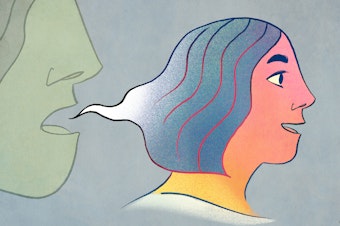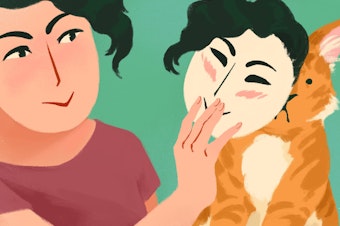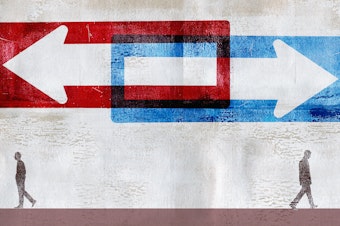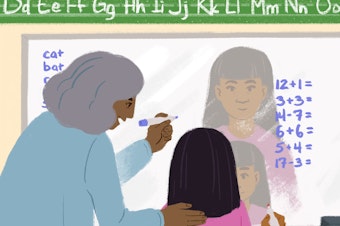Tara Boyle
Stories
-

Finding Your Voice: How The Way We Sound Shapes Our Identities
At some point in our lives, many of us realize that the way we hear our own voice isn't the way others hear us. This week on Hidden Brain, we look at the relationship between our voices and our identities. Plus, we hear how advances in technology might help people with vocal impairments, and consider the ethical quandaries that arise when we can create personalized, customized voices.
-

The Fox And The Hedgehog: A Story of Triumphs and Tragedy
The Greek poet Archilochus wrote that "the fox knows many things, but the hedgehog knows one big thing." This week, we'll use the metaphor of the fox and the hedgehog as a way to understand the differences between tacticians and big-picture thinkers. We'll explore the story of a pioneering surgeon whose hedgehog tendencies led him to great triumphs, and a heartbreaking tragedy. This episode first aired in May 2017.
-

I Buy, Therefore I Am: How Brands Become Part Of Who We Are
All of us are surrounded by brands. Designer brands. Bargain-shopper brands. Brands for seemingly every demographic slice among us. But have you ever stopped to ask yourself how brands influence you? This week, we look at how companies create a worldview around the products they sell, and then get us to make those products a part of who we are.
-

Life, Death And The Lazarus Drug: Confronting America's Opioid Crisis
More than 70,000 people died of drug overdoses in 2017 — many of them from heroin and other opioids. One of the most widely-used tools to confront this crisis is a drug called naloxone. It can reverse an opioid overdose within seconds, and has been hailed by first responders and public health researchers. But in 2018, two economists released a study that suggested naloxone might be leading some users to engage in riskier behavior — and causing more deaths than it saves. This week, we talk with researchers, drug users, and families about the mental calculus of opioid use, and why there's still so much we're struggling to understand about addiction. This episode originally aired in October 2018.
-

Pets, Pests, And Food: Our Complex, Contradictory Attitudes Toward Animals
Does living with animals really make us healthier? Why do we eat some animals and keep others as pets? This week on Hidden Brain, we talk with psychology professor Hal Herzog about the contradictions embedded in our relationships with animals.
-

Me, Myself, and IKEA: What Our Love For Swedish Furniture Says About Narcissism
Are women named Virginia more likely to move to Virginia? Are people with the last name of Carpenter more likely to be carpenters? This week on Hidden Brain, we bring you a favorite 2017 episode about our preference for things that remind us of ourselves, and why this tendency can have larger implications than we might at first imagine.
-

People Like Us: How Our Identities Shape Health And Educational Success
Generations of Americans have struggled against segregation. Most of us believe in the ideal of a colorblind society. But what happens when that ideal come up against research that finds colorblindness sometimes leads to worse outcomes?
-

More Divided Than Ever? Excavating the Roots Of Our Political Landscape
Many of us intuitively feel that the bitter partisanship of American politics is bad for our nation. So should we be concerned about the health of our democracy? This week on Hidden Brain, we revisit two of our favorite conversations about U.S. politics. We start by talking with political scientist John Hibbing about the psychological differences between liberals and conservatives. Then, we explore the role of conflict in democracy with historian David Moss.
-

Some People Are Great At Recognizing Faces. Others...Not So Much
It happens to all of us: someone recognizes you on the street, calls you by name, and says hello. You, meanwhile, have no idea who that person is. Researchers say this struggle to read other faces is common. This week on Hidden Brain, we revisit a favorite 2016 episode about "super-recognizers" and the rest of us.
-

What's Not On The Test: The Overlooked Factors That Determine Success
Smarts matter. But other factors may play an even bigger role in whether someone succeeds. This week, we speak with Nobel Prize-winning economist James Heckman about the skills that predict how you'll fare in life. We'll also look at programs that build these skills in the neediest of children – and new research that suggests the benefits of investing in kids and families can last for generations.